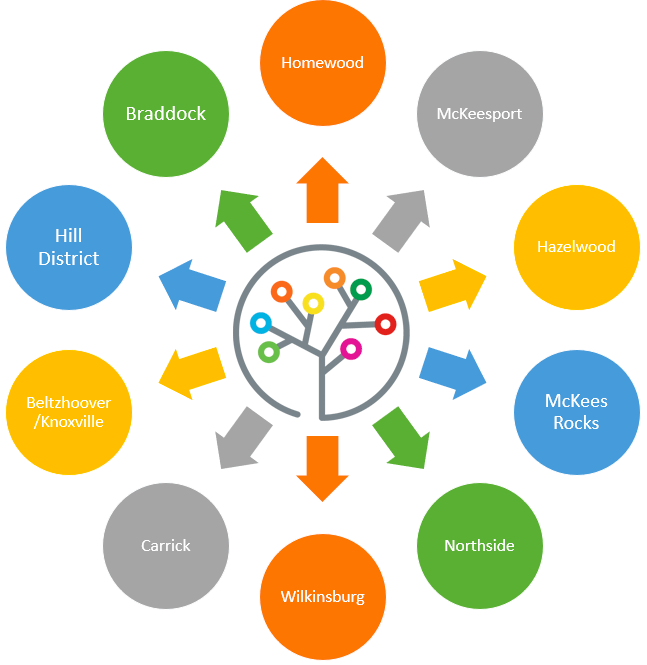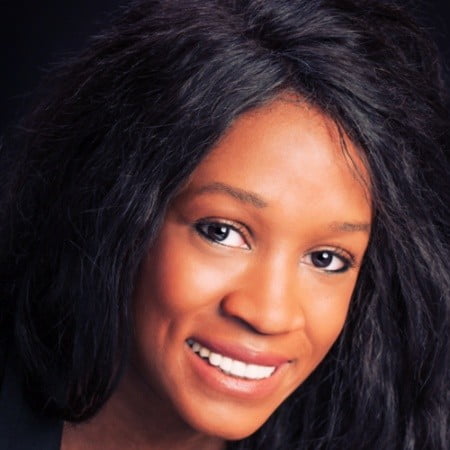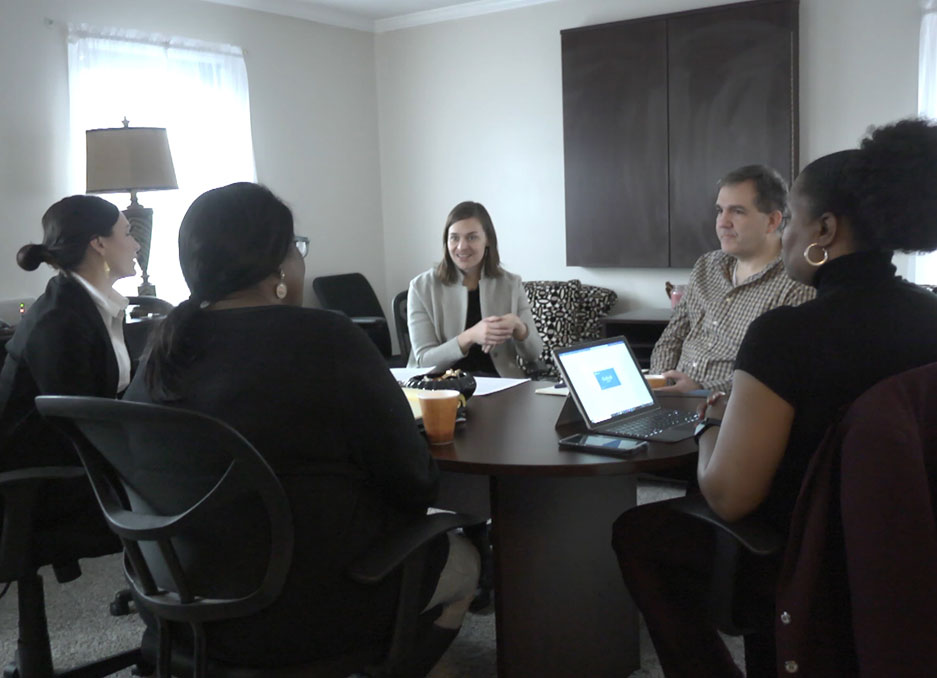C3 Catalytic Community Cohorts
A yearlong program that engages organizations through a range of regular, skills-building activities.
Bringing organizations together for the greater good of the community.
The City of Pittsburgh is home to over 3,100 nonprofit organizations, many with overlapping missions that put them in competition for the same resources. Overlaps, fragmentation, and competition for resources puts additional stressors on already struggling communities. Many of these nonprofits serve the communities where they live and work. Neighborhood-based nonprofits know their communities and residents and are often the best resource for a community.
C3 is a different approach; capitalizing on the individual strengths of a community, The Forbes Funds hopes to co-design with leaders to tackle their community’s individual challenges and ensure that necessary services and opportunities are reaching residents, all while growing the skill set of these leaders who live and work within the community. Part of this skill set will include participation in Community-Based Participatory Research (CBPR) and developing community-level scorecards, white papers, and briefs.
The vision.
Strategic train-the-trainer framework for resilient communities
Robust partnerships among neighborhood-based nonprofits
Transferable skills to increase the capacity of residents and leaders
Create and sustain collaborative relationships with fellow groups within your community.
Together, these groups share knowledge and work toward collective community goals. Through this peer-to-peer model of community development, C3 increases the capacity of the community at-large. The C3 model naturally creates an ecosystems as community leaders are empowered to identify and implement programs in a way that best serves the demographic they serve.
The yearlong C3 program will engage participating organizations through a range or regular, skills building activities. Recruitment will be based on an individual’s ability to commit the necessary time and resources, as well as additional critical outlines below, in order to ensure full impact and successful outcomes.
Developing Mini Ecosystems driven by shared community stakeholder interests, with a goal of 50 communities over five years through the approach involving the Hub and Spoke model.


Hi, I’m Olivia Benson and I am the Chief Operating Officer of The Forbes Funds and Greater Pittsburgh Nonprofit Partnership. A proud nerd, I have a BS in Policy and Management from Carnegie Mellon University, an MBA from Point Park University, and an MS in Social Policy from the University of Pennsylvania. In my roles, I am responsible for managing C3 work and Human Centered Design Work, including organizational development, coalition building, project management, public and community relations, and policy analysis among other things.
Professionally, I have been recognized as a social innovator in civic engagement, diversity in elected office, and social impact policies. I have a proven record in promoting advocacy causes, social entrepreneurship, and community-building for social change. I helped co-found She Runs SWPA, which is an initiative that encourages more women to run and get elected to public office, and consider this one of my proudest accomplishments by far.
OUR APPROACH:
Capacity Building
Convening
Coordinating

Take the next steps towards boosting your mission work today!
